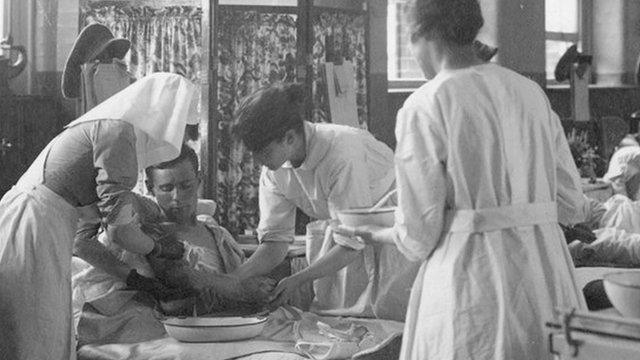Medical pioneer Dr Flora Murray features on new bank note
- Published
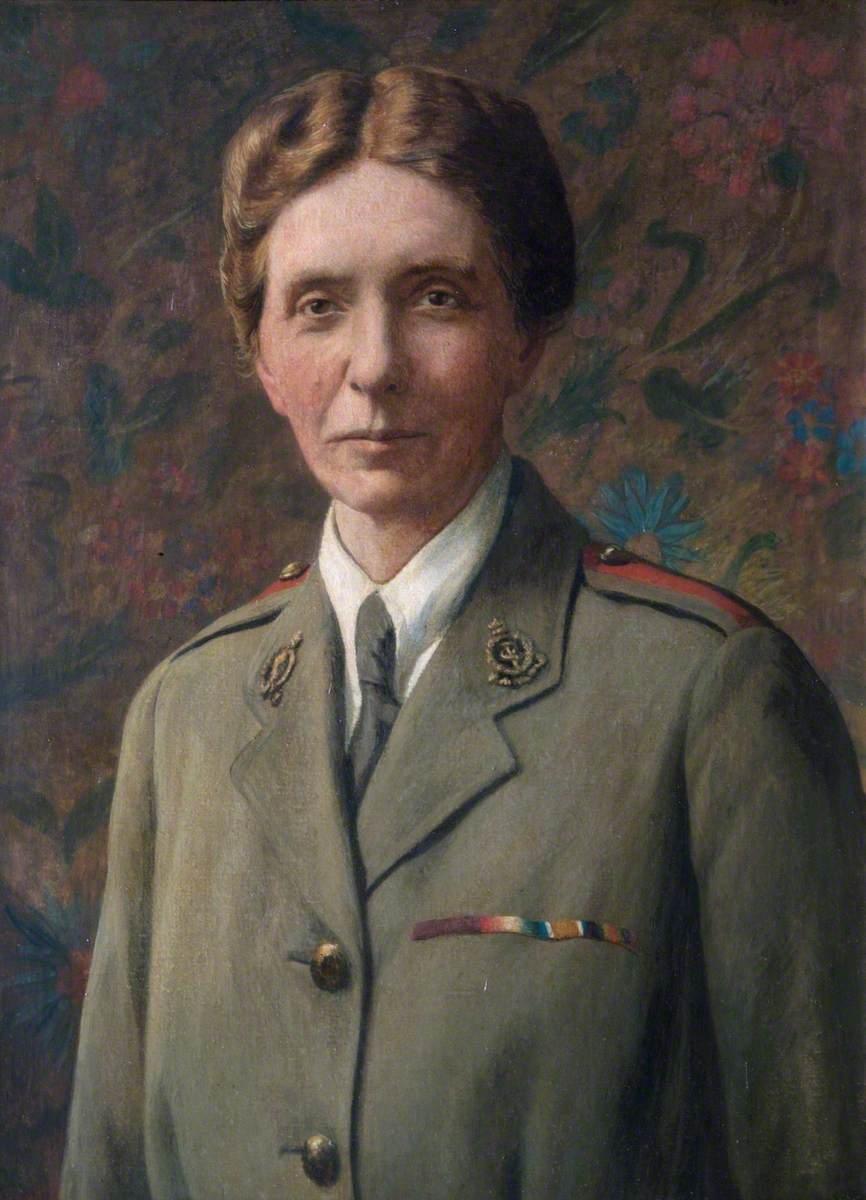
Dr Murray was awarded a CBE for her work and medical efforts during WW1
Suffragette and medical pioneer Dr Flora Murray is to feature on the Bank of Scotland's new polymer £100 note.
The bank said it was proud to highlight her "remarkable work" in medicine and fighting for women's rights.
Born in Dumfries in 1869, she qualified as a doctor in 1905 and was awarded a CBE for her work and medical efforts during World War One.
Along with her partner, Louisa Garrett-Anderson, she founded the Women's Hospital for Children in London.
It provided healthcare for children of factory and shop workers in the local area, because women were restricted to treating only women and children.
When the war began in 1914, the women founded the Women's Hospital Corps, a feminist organisation, and opened two successful military hospitals in France, staffed entirely by female suffragettes.
In 1915, the British War Office provided them with a premises in London.
Together they transformed it into the Endell Street Military Hospital, the first hospital in the UK established for men by female medical professionals.
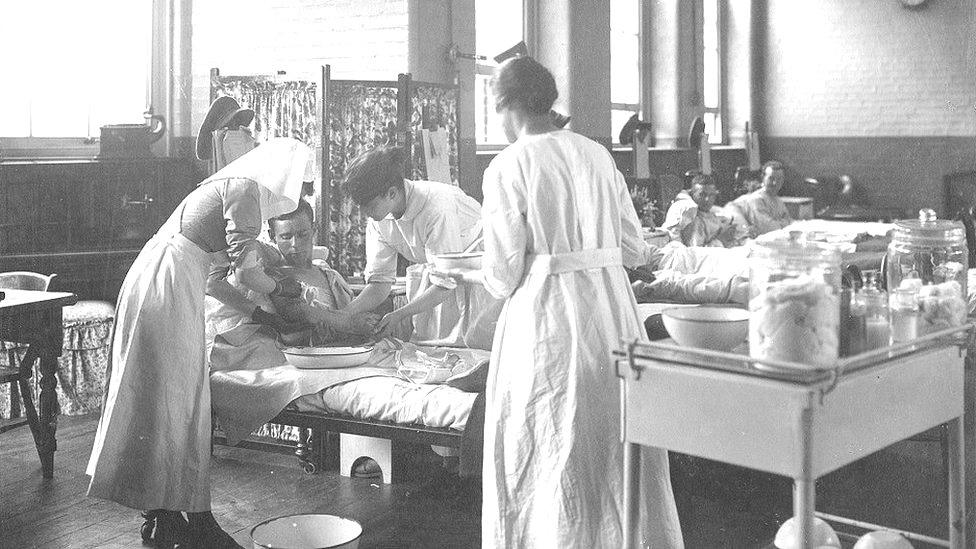
Endell Street - located in a former workhouse - operated between 1915 and 1919
There they treated more than 50,000 seriously injured soldiers and saved countless lives.
Caroline Clarke, chief executive of the Royal Free London NHS Foundation Trust, said the note gave Dr Murray "her rightful place in the pantheon of British medical history".
She said: "Almost a century since her death, Flora's story is a reminder of the huge debt of gratitude we owe to those early agitators who refused to accept the limitations imposed by a society that didn't believe women could or should be doctors, physicians and surgeons."
Philip Grant, chairman of the Scottish Executive Committee at the Bank of Scotland, said: "We are so proud that our new £100 polymer note commemorates the remarkable work of Dr Flora Murray who, alongside being a medical pioneer, spent her adult life fighting for women's rights as a suffragette."
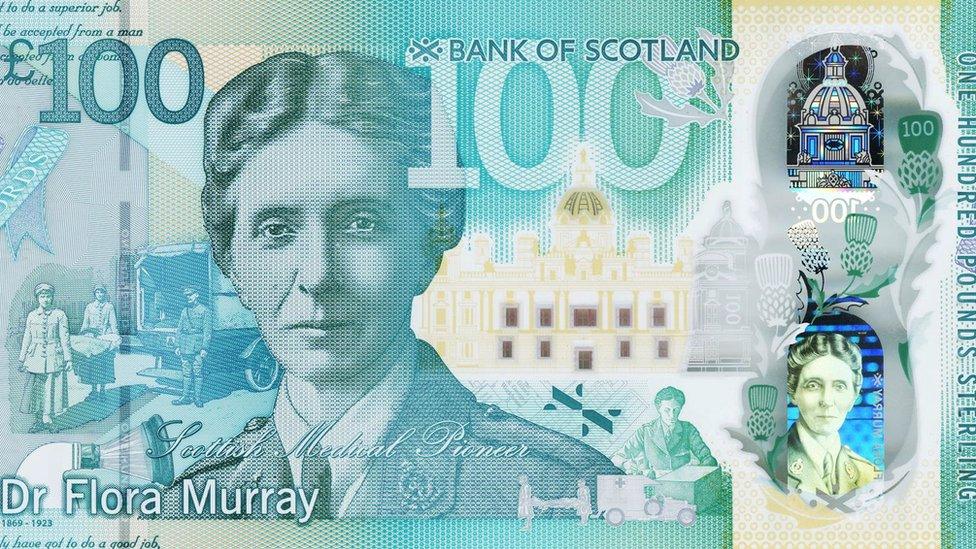
The new £100 polymer note
The new note, which will replace the cotton version, has a number of updated security features - including a see-through window and a holographic foil strip which displays Dr Murray's image.
Novelist Sir Walter Scott and an image of The Mound in the Edinburgh will feature on the front of the new note, which will be released next month.
On the reverse is a portrait of Dr Murray, painted by Francis Dodd in 1921, along with an image of female stretcher-bearers outside the Endell Street Hospital.
Related topics
- Published1 June 2020
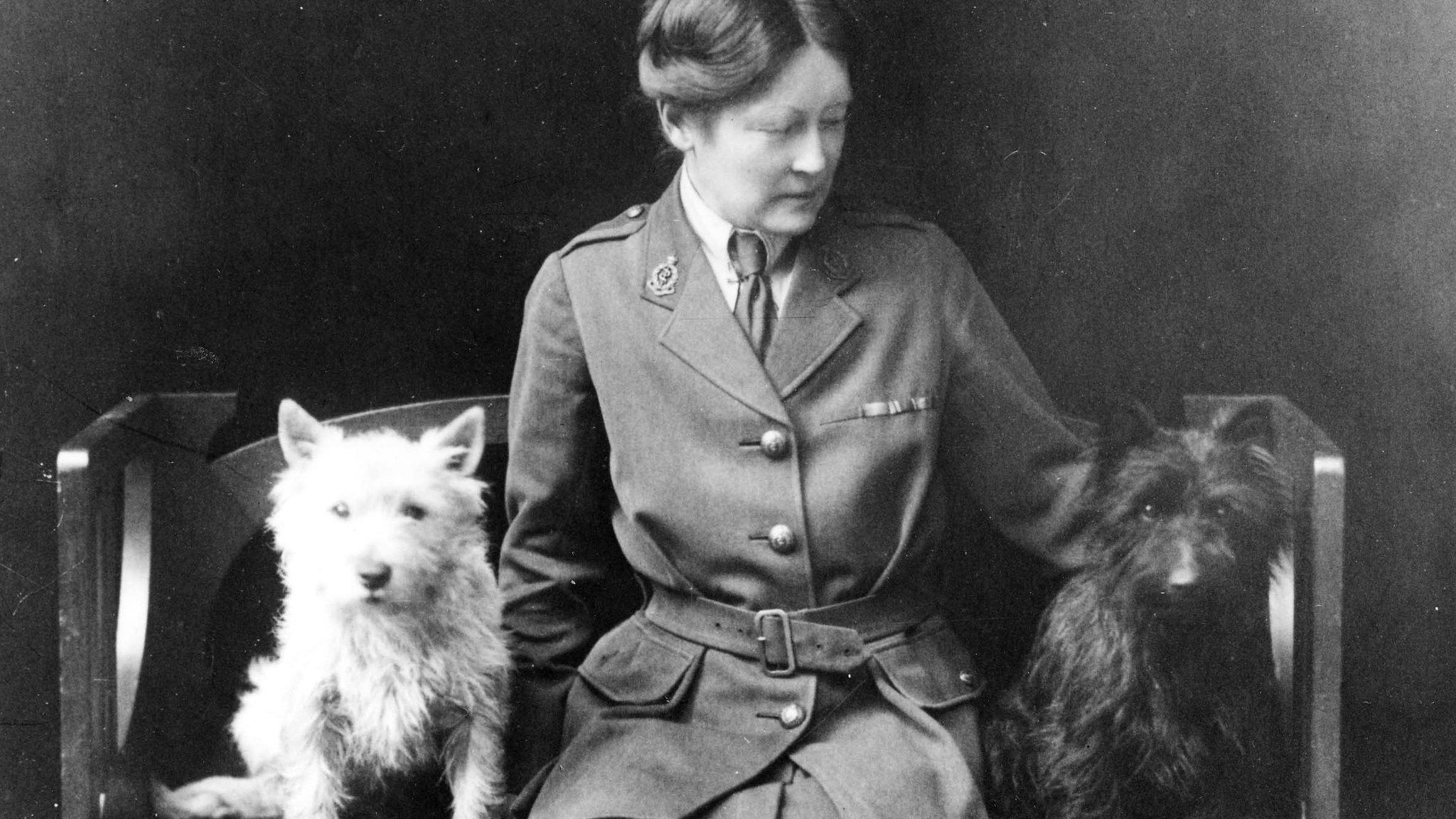
- Published28 February 2014
